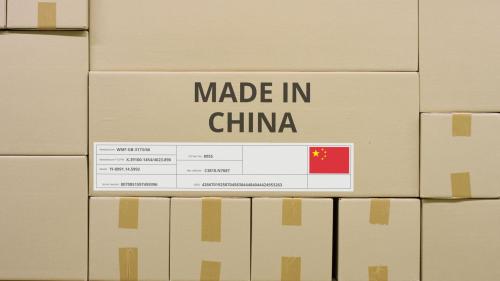This viewpoint is part of USMCA Forward 2024.
Last year, Canada experienced the most destructive wildfire season in its history. Such extreme weather events are largely caused by our changing climate. This wildfire season shows us what the future looks like if we fail to effectively tackle climate change.
Beyond its increasingly severe impacts on our environment, climate change is also rapidly transforming the global economy and global finance; it is creating economic opportunities for those who approach the transition to a low carbon future in a thoughtful, determined, and strategic manner.
The global energy transformation that is already well underway is both an environmental imperative to protect the planet for future generations and an economic opportunity on a scale similar to the industrial revolution. The energy transition is being fueled by financial markets that are increasingly playing a role in the shift to a low carbon future through their investment decisions.
To effectively seize the economic opportunities associated with the transition to a net zero future, countries must approach this transition in a thoughtful, strategic, and collaborative manner.
Governments around the world— friends and competitors alike—are also increasingly taking action. For example, the United States is making massive investments in clean economy through the Inflation Reduction Act (IRA). Similarly, the European Union, Japan, and Australia are putting into place strategies to accelerate clean industrial growth. And beyond democratic friends, countries such as China are also moving strategically. In 2022, China accounted for around half of wind and solar additions in the world, and well over half of global EV sales. And China presently dominates global critical mineral supply chains.
China has made a major bet on the energy transition—and aims to be a leader in the technologies that will be central to it. We have also seen their willingness time and again to act in an economically coercive manner, including through export restrictions and other unfair and arbitrary measures that affect access to clean energy material and technologies. This is something that must be a wake-up call for those politicians in western countries that continue to pretend that future prosperity lies in simply pursuing the same pathways that the energy transition is fundamentally disrupting as we speak.
To effectively seize the economic opportunities associated with the transition to a net zero future, countries must approach this transition in a thoughtful, strategic, and collaborative manner.
In Canada, we have developed a comprehensive approach to addressing carbon emissions while concurrently looking to seize the enormous economic opportunities that will come through the transition to a net zero future. Canada is well placed to seize such opportunities due to:
- A well-educated and highly trained workforce;
- Vast natural resources that are increasingly in demand, including things like critical minerals, which will be required by our key allies and partners;
- Innovative energy and clean technology companies, technologies, and expertise;
- Trade agreements with major economies around the world; and
- Banking, political, legal, and regulatory systems that are stable and predictable.
All of this means that Canada can and will be an important player and partner in addressing economic, climate, clean energy, and security goals. This is particularly true for countries that share common values and aspirations. Certainly, Canada’s international collaboration includes the United States and Mexico—our closest friends, trading partners, and allies.
While cooperation in many areas will be crucial moving forward, we in Canada are keenly aware that stable and predictable, tariff free trade provided by the Canada-U.S.-Mexico Agreement (CUSMA), is crucial for sustainable economic growth and prosperity in all parts of North America.
CUSMA provides certainty for investors and market opportunities for companies in all three countries. CUSMA’s committee architecture, particularly the Committees on Environment and North American Competitiveness, enables us to work collaboratively and effectively. It helps us to ensure North America is at the forefront of the global energy transition, and that our workers and communities will benefit from low-carbon growth and the friendshoring of supply chains.
In the context of both the energy transition and the current uncertainties in geopolitics, it is more important than ever that Canada, the United States, and Mexico work actively and collaboratively to uphold and further the commitments we have made in the CUSMA.
CUSMA has been and is a critical tool in advancing beneficial integration of North American economies and facilitating cross-border investments and trade in goods and services. This includes the resources, technologies, and advanced products needed to meet our shared climate goals and seize the immense economic opportunity of the energy transition.
In the context of both the energy transition and the current uncertainties in geopolitics, it is more important than ever that Canada, the United States, and Mexico work actively and collaboratively to uphold and further the commitments we have made in the CUSMA. We must continue to discourage the use of market distorting policies and limit the impact of unfair and discriminatory trade practices on partner economies. We must also continue to collaborate on environmental and labor standards.
As we approach the 2026 review of CUSMA, we must be clear—a prosperous and sustainable continental economy is and must be built on agreed upon, predictable, fair, and inclusive trade, underpinned by rules and functioning dispute settlement processes.
Globally, principles of free and inclusive trade are under threat—as are democratic values. In too many places, voters are turning inwards, towards leaders who espouse protectionism and economic nationalism as a solution to economic challenges. Such leaders are increasingly turning their backs on the free and fair exchange of goods, services, and technologies that enable efficiency, prosperity and can accelerate the emergence of a thriving low carbon economy.
It is in this context that Canada is committed to continuing to be a reliable partner to our Mexican and American friends. By working together, we can continue to create wealth and well-paying jobs while collectively working to achieve our respective climate goals.
Building on our friendship, our partnership, and our shared values, we can set the example for building a more competitive, inclusive, and sustainable economy.
The Brookings Institution is committed to quality, independence, and impact.
We are supported by a diverse array of funders. In line with our values and policies, each Brookings publication represents the sole views of its author(s).







Commentary
The CUSMA is a generational economic opportunity for the North American energy transition
March 6, 2024